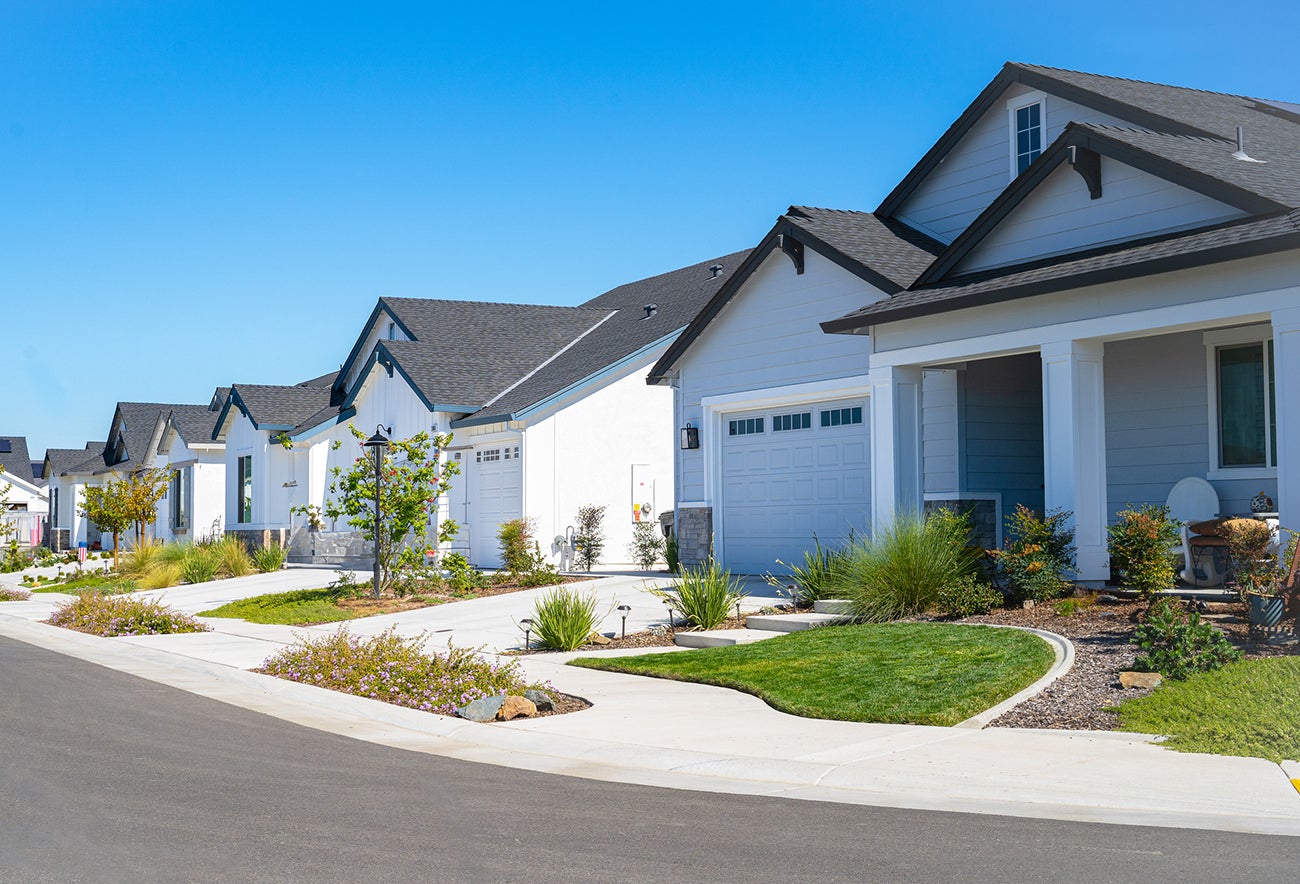The Utilities Questions No One Thinks to Ask Before Buying a House
Going in without all the information could cost you big.

Once they've found a place they love, most home shoppers shift to considering the hard numbers: The selling price or the monthly rent, the estimated taxes, the square footage, their mortgage rate, etc. Often lost in the shuffle are questions about the utilities—the gas, electricity, water, and internet services that power a home and make it comfortable and livable.
Utilities exist in the background of our lives, and if you previously rented, some may have been folded into your monthly payment, so many buyers don’t think about them much before moving in. After all, it's not like your new home just won’t have gas and water, right? But there’s a lot more to your utilities than simply having them. Here are the questions you should be asking about the utilities in any home you’re thinking of buying.
How much will my bills be every month?
The most obvious question that a lot of homebuyers neglect to consider is what the average bill will be for each utility. The cost of natural gas, electricity, water, and internet varies considerably from place to place—often just within a few miles or based on time of usage. If your utility costs have previously been hidden in your rent payments, you might not even be aware of what you’ve been paying for these services, because the landlord is definitely passing the costs along to you. Even if you know very well what your utilities cost you in your old place, there’s no guarantee those bills will be similar in the new house.
The best way to know what you’re getting yourself into, budget-wise, is to ask the current owners what their monthly bills are on average. Better yet, ask to see a year’s worth of utility bills for each relevant service so you can get an idea of what you’ll be paying. The average overall cost for electricity, water, gas, and internet around the U.S. is about $330 per month, so if the number you hear is significantly higher than that, you might need to dig in deeper to find out why.
Does the home share resources with another?
Something few think to ask is whether the home they're considering shares any gas or electric supply (or any other utility you might have to pay for, like sewage or water) with a neighboring property. When my own next-door neighbor launched a major renovation of his house, he discovered (to his dismay) that he shared a gas supply pipe with his neighbor on the other side, which the local utility then insisted had to be separated. This significantly delayed the project as he struggled to coordinate with the city and the utility company to get the work done.
It’s not uncommon for attached row homes or homes that were originally built as duplexes (or twin homes) to have at least one shared electric meter, often in the garage. One homeowner on Reddit posted a worry about charging an electric car in the future because his garage shared electricity with his next-door neighbor in what is essentially a two-owner condominium situation. Making sure your utilities are wholly separate from your neighbors' can spare you trouble down the line—or at least prepare you for future problems.
What type of meters does it have?
Smart meters now make up more than 70% of utility meters in the U.S.—but that leaves a lot of old-fashioned meters out there that need to be read manually. That means someone will come to your house once a month, physically enter it to read your meters if they are located inside, or you’ll be stuck reading and self-reporting your meters. And if you forget or the utility workers can’t gain access for a while, the utility will estimate your bills, which can lead to unexpected balloon payments later.
The kind of smart meter matters, too. Some smart meters must be read from outside your home via a wireless signal, which means a utility worker may still need limited access to your property in order to get close enough, while others send the information directly to the utility with no interaction necessary. Knowing all this will prepare you for a small but important aspect of living in that home.
Is the home eligible for any subsidies?
If you're buying a house, your finances are probably in order—today. But none of us know what’s coming tomorrow, and you wouldn’t be the first person to become house poor after the fact. Asking about the availability of subsidies or utility bill assistance programs in your area is good due diligence. You may never need to worry about paying the power bill, but if you find yourself struggling after a layoff, medical procedure, or other financial emergency, having that information on hand can make things a lot less stressful.
Is the service reliable?
It’s almost a cliche for house hunters to run the water in every bathroom and the kitchen to judge the water pressure—but this isn't really an effective way to test that aspect of your new home. Bringing a water pressure gauge as part of your house hunting tool kit will give you a better idea, but you should also ask the current owners whether the water pressure is consistent.
Getting a good reading when you’re touring the place is just a single data point. Other things to ask about in terms of the quality of the utilities include:
Does the water pressure plunge when more than one appliance is running?
How are the internet speeds? Are there slowdowns during heavy-usage periods, or dead spots in the house that might require you to buy a mesh router system?
Does the electricity ever flicker, or does the home experience frequent brownouts or blackouts?
Is the water hard? Will you need a softener?
How often does the area experience water main breaks?
How quickly do the local utility companies respond to problems (especially emergencies)?
Where are the mechanicals located?
The location of your appliances is important, but is often overlooked. Some questions you should ask about the placement of the water heater, furnace, and other aspects of your potential new home’s utilities. Check out the mechanical area if you can, and consider whether it’s easily accessible—will workers (or you) be able to get in there to make repairs or perform maintenance? Will there be difficulties getting replacement units in and old units out?
Another consideration is the level your appliance will be located on. If they’re in the basement or crawl space, does the area flood? Will their air filters have to work overtime due to dust and other environmental factors? And if utility workers will need to read your meters—where are they located? Will you have to give someone a tour of your messy house every time the meters are read?


















































































































































